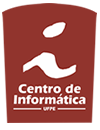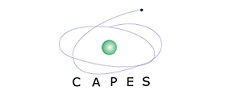
Keynotes:
 Claes Wohlin
Claes Wohlinis a professor of software engineering at Blekinge Institute of Technology, Sweden.
Are Systematic Literature Studies Trustworthy and Useful for Research and Practice?
Systematic literature reviews and systematic mapping studies have become common in software engineering. These types of studies are secondary studies, i.e. they build on research studies conducted by others. However, secondary studies come with challenges. Thus, it becomes more and more important to better capture lessons-learned from conducting such studies and to understand the reliability of them. At the end, a researcher would like to know whether a secondary study is trustworthy and capture the research gap in an area. From an industrial point of view, a practitioner may want to know if a secondary study is useful for taking a business decision. The keynote presents experiences from conducting secondary studies and some reflections on literature on the subject. It is concluded that secondary studies are important, but their reliability cannot simply be taken for granted. The presentation is concluded with some pointers to further research needed to make secondary studies even more valuable to both researchers and practitioners.
Contact him at Claes.Wohlin@bth.se or visit his website at www.wohlin.eu.
 Steve Easterbrook
Steve Easterbrookis a professor of computer science at the University of Toronto, Canada.
Software Teams As Knowledge Communities
Software development is an uncertain process, in which it's often impossible to know in advance what solutions will be acceptable to customers and users. Hence, software development is usually an iterative process, in which the software team gains a deeper understanding of the nature of the requirements with each iteration of the design process. This is particularly true of computational science, in which simulation models are built to explore the consequences of hypotheses, where direct experiment or calculation of results is not possible. However, the construction of computational models differs in a number of important ways from conventional software - the scientists who build the software have deep domain expertise, but are not trained as software developers, they tend to build the software for their own use, rather than for other users, and, in many cases, code development is not formally part of their job description. In my studies of how computational scientists build their models, I've been struck by how they weave software development into the scientific process - each new variant of the code is a new experimental treatment, built to test a specific (but often unstated) hypothesis, and software testing is run like a scientific investigation. In this talk, I'll explain these distinguishing traits of scientific software development. I'll go on to argue that these differences shed an interesting perspective on software development in general, and pose some challenges for empirical studies of software practices. In particular, I will argue that we focus too much on the interactions between developers and technical artefacts they work with, and not enough on how software teams operate as knowledge communities, and in particular the question of how they accumulate and share their understanding of the problem domain. I will illustrate these ideas throughout the talk with examples drawn from a multi-year multi-site ethnographic study of how climate scientists build the earth system models that shape our detailed understanding of the climate system and provide projections of future climate change.






